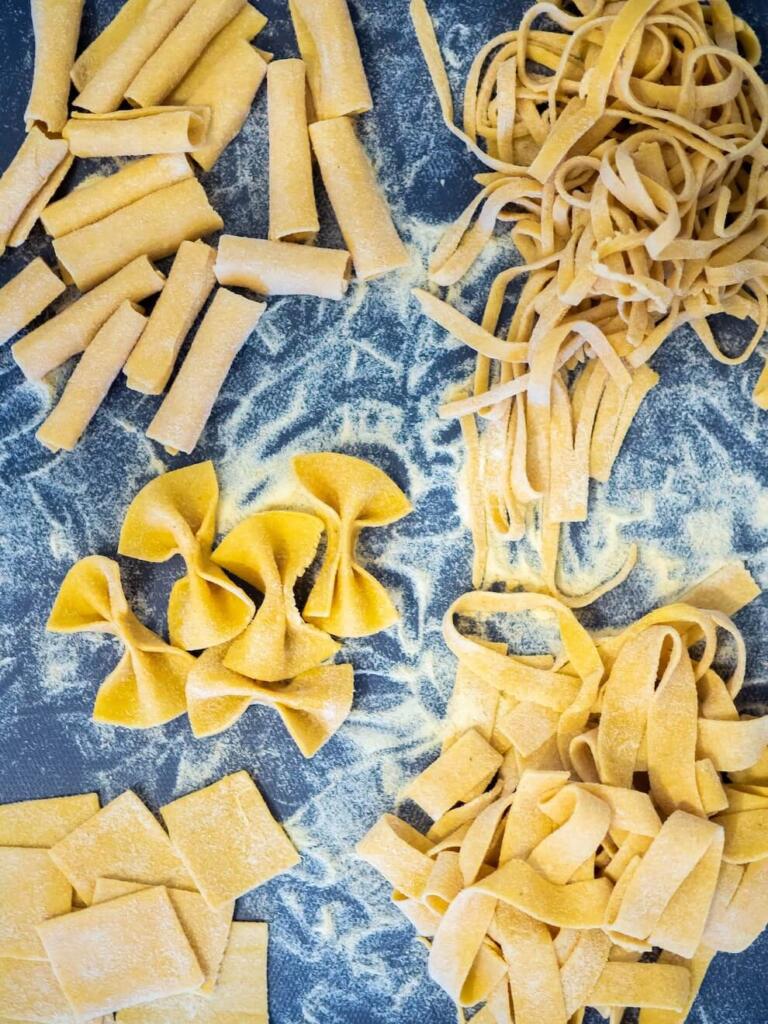One of the most famous cuisine in the world has often been cited to be the Mediterranean, often paired with olive oil. The mighty olive oil is present in many modern recipes and still holds onto its healthy seal of approval for many people. The origins of this oil, and olive trees in general, seem to not actually be from the Italian or Balkan peninsula.
Ancient origins of olive oil
In 2014 an archeological paper stated that it had found a settlement buried in the south of Haifa, Israel. Here pottery jugs were found with remnants of olive oil dating back 8000 years ago, the oldest remains ever found. This indicates that there was a market for olive oil back in 6000 BCE.
Regarding the origin of olive trees, many experts say that they were most likely domesticated in Persia or Egypt. Then they were spread around the Mediterranean basin by the Phoenicians sometime between the 28th century BCE.
Olive oil – the stuff of myth
Popular in Ancient Greece, olive trees have also found a place in Greek mythology. The goddess Athena gave the Ancients Greeks an olive tree as a gift. They liked it so much that they named their city after the goddess.
The spread of Greek culture throughout Ancient times, by way of colonization. They brought with it the olive tree as a trade commodity and agricultural product. It thus found roots in many other countries around the shores of the sea from Italy to Spain. Roman conquest of Greece and rise to power ensured the continuation of olive’s uses and further commercialization.
Utility spectrum
Even as far back as Ancient Roman times, olive oil was used for more than just cooking. With the perfection of the oil press, production saw more and more affordable prices.
At the table, it is a staple ingredient in many Mediterranean culinary practices. Used since ancient times, in cooking or raw as dressing. Off the table though, olive oil has been employed in cosmetic use throughout history. From moisturizing, cleansing to massage oil, and antibacterial ointment.
Olive oil made its way into religious practices as well. The oil of the Catechumens in Christianity or perfumed consecrated oils were used for the sacrament. Archaeological evidence also revealed its use in oil lamps as fuel.
American trade
Discovering the new continent across the ocean came with the added bonus of many discoveries. Some took the form of new edibles such as corn, cocoa beans, tomatoes, and many more.
These new types of foods were brought back and planted in Europe, but that is not to say that America saw no new foods for itself. In the 16th century olive trees were introduced on the new continent in warmer southern territories like modern-day Argentina.
Olive oil extraction
The process of extracting oil is a scientific process in and of itself. Firstly, the olives need to be the right degree of ripeness. Too green and the oil will turn out too bitter, too ripe and the oil will be rancid. Thus everything starts at the very beginning with picking the olives from their respective trees.
The next step is to grind the olives into a paste with millstones, as done in the olden Ancient days, or with steel drums as it’s done today. After that, the paste is pressed to separate the pulp from the liquid.
Olives still have a fair amount of water, and it used to be driven out by the use of gravity since water is denser than oil. To speed up the process now, gravity is replaced with centrifugation. This step is done to ensure a more lasting oil, as water will speed up the disintegration process.
The oil will be pressed out mechanically and this end product is considered virgin oil. Weather factor affects the production of oil as drought can reduce its quality. Filtration is done next, to ensure less solid particles remain in the olive oil. Although some prefer an unfiltered cloudy oil.
Environmental concerns
The remaining olive pulp name pomace still retains some residue oil. Further processing by way of chemical solvents is undertaken to drive out this oil. The oil produced with this process is called pomace oil, not virgin oil.
Handling this type of oil waste is a difficult endeavor as it is not biodegradable and poses a risk to the environment. Pomace oil would routinely be used in composting and as an alternative biofuel, but even as that the risk of chemical contamination poses a great concern.
Health benefits
Olive oil is often praised as a healthy dietary fat. Studies show that cooking it and subjecting it to higher temperatures decomposes its nutrients and renders them sterile. Other studies reveal that raw olive oil may have positive effects on the heart and help reduce the level of coronary heart disease if the oil is eaten raw for a certain period of time.
It is undeniable that olive oil has made its way onto everyday household tables, in cosmetics, and even in religious practices. Its uses today, as in the past, vary and cover a wide range in the spectrum of cultural and culinary life.



1 Comment